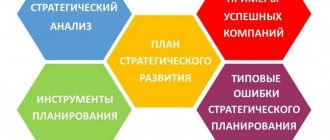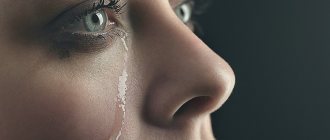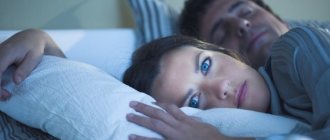The short-term craving for sleep during the day is well known to most of us. As a rule, this is a consequence of overwork, caused by increased physical and mental stress or chronic lack of sleep. Yawning and drowsiness often occur in a stuffy room with a lack of oxygen. Once you go out into the fresh air, your vigor returns. Thus, by observing the nature and duration of the period of drowsiness, we can conclude how serious the pathology is.
What to do if you constantly feel sleepy
If you constantly want to sleep, but at the same time you feel tired, your performance and concentration decrease, you should make an appointment with a doctor. Based on the results of the examination (if such a need arises), the therapist will prescribe a course of treatment or give a referral to a specialist. Most often, drowsiness is a companion to any chronic disease, so the patient will have to undergo examination so that the cause of the syndrome is correctly identified.
If a headache appears after sleep or the pain syndrome is present in a muted form during rest, while weakness and fatigue progresses, a visit to the doctor cannot be postponed. The symptoms described above are characteristic of diseases of the central nervous system, circulatory organs, heart and blood vessels, and many other pathologies.
Let us consider in more detail the features of the manifestation of drowsiness in various diseases.
How to cope with fatigue and apathy on your own
You can combat seasonal drowsiness by taking foods containing B vitamins and ascorbic acid. In addition to citrus fruits, the diet includes general strengthening agents.
An infusion of dried calamus roots (10 grams of raw material per glass of boiling water) is drunk a quarter glass 30 minutes before meals. It will help cope with physical fatigue and improve condition after serious illnesses and operations. It is useful to take in old age.
For lethargy resulting from depression, hypotension, and functional disorders of the nervous system, a tincture of Aralia tall or cordate roots is recommended. It is prepared with alcohol in a ratio of 1:5 and taken 30–40 drops 2–3 times a day. The juice of barberry berries, fresh grapes, pomegranate fruits, cherries, and infusion of cinnamon rose hips have a general strengthening effect on the human body.
Severe fatigue goes away after drinking Schisandra chinensis tincture, 30–40 drops per day, or eleutherococcus. Vital tone is increased by the infusion of mistletoe herb. Take a teaspoon of raw material per glass of boiled water at room temperature. After 8 hours of infusion, drink a third of a glass up to 3 times a day.
Stimulation of energy and endurance is needed for those who have constant weakness and drowsiness. Magnesium in purslane, beans, spinach, lettuce, poppy seeds, and coriander can restore vital potential. Cortisol contained in licorice root helps fight stress. You should take 2-3 grams of root in the morning and evening, reducing the amount of herbal remedy after 6-8 weeks.
Changing your lifestyle will help you get rid of chronic fatigue
If you cannot get rid of increased fatigue and apathy with folk remedies, then you need to consult a doctor. Conditions that make it difficult to work, disrupt sleep, or disrupt relationships with others require consultation. It is dangerous when, after a period of good health, severe apathy suddenly sets in.
In this case, you need to undergo a comprehensive examination by visiting an endocrinologist, cardiologist, neurologist, or psychotherapist.
Increased self-esteem
You can get rid of fatigue and drowsiness using psychological methods:
- the ability to forgive oneself for mistakes;
- spending free time with people who inspire and support self-confidence;
- planning to introduce new things into your life;
- reading good books, discussing them with friends.
Only positive emotions and good feelings protect against fatigue and prolong life. We must constantly please ourselves with good deeds. Relieves tension in the evening by taking a warm bath or massage. It is important to be able to keep your back straight. Then apathy and weakness will have no place in life.
Frequent drowsiness and fatigue, apathy, and lack of vital energy are cured when the cause of the condition is identified. Signs caused by external causes can be easily eliminated by changing your daily routine and diet. Internal causes must be dealt with together with specialists.
Vegetovascular (neurocirculatory) dystonia
Vegetative-vascular dystonia is a dysfunction of the vascular system associated with a disorder of the endocrine system (more precisely, with a change in the mechanism of neuroregulation). The disease is so common that many people do not perceive it as a serious illness. The high-risk group includes young and middle-aged women. In addition to drowsiness and headache, signs of VSD are:
- cardiopalmus,
- rapid onset of fatigue from minor physical exertion;
- feeling of lack of air (a person often sighs);
- periodic dizziness;
- pain in the heart area;
- cold extremities (especially hands and feet);
- tendency to sweat.
A large role in the development of the disease is played by hereditary predisposition, bad habits (smoking in the first place), a sedentary lifestyle, inability to withstand stressful situations, and emotional instability. VSD can develop against the background of cerebrovascular accident.
In most cases, symptoms of VSD disappear with lifestyle changes. Proper nutrition, physical exercise, adherence to a work-rest regime, and regular hardening lead to a significant improvement in well-being: drowsiness and headaches disappear, mood improves and performance increases.
In advanced cases, medications are prescribed to improve the functioning of the autonomic nervous system. The problem cannot be solved on its own; medical assistance is required.
Competition “Bio/Mol/Text”-2020/2021
This work was published in the “Free Topic” category of the “Bio/Mol/Text” competition 2020/2021.
The general partner of the competition is the annual biotechnology conference BiotechClub, organized by the international innovative biotechnology company BIOCAD.
The sponsor of the competition is SkyGen: a leading distributor of life science products on the Russian market.
Competition sponsor: the largest supplier of equipment, reagents and consumables for biological research and production.
"Book" sponsor of the competition - "Alpina Non-Fiction"
We often hear that social networks are to blame for everything: “Teenagers do not part with their phones, they sit on them day and night! And then they can’t wake up for school, they fall asleep in class, and because of this they study poorly. Then on weekends they sleep until noon, but the lessons won’t teach themselves. Okay, if they want to go to bed late, then let them read books, because it’s this blue light from the screens that keeps them awake for so long!”
Do you recognize the arguments? But some of them are myths, while the significance of others is exaggerated. In reality, why we sleep and how we do it at different times in our lives is a complex and contradictory story. Let's try to figure out why the sleep of teenagers and young adults is so different from the sleep of middle-aged people and children, why we don't get enough sleep all the time (even if we sleep for what seems like a sufficient amount of time), what role does the first class/first lesson at 8 play in this? :30 in the morning, and what - hanging out on social networks at night, looking at it, and let's talk about whether something can be done about all this.
CNS lesions
Any brain damage caused by infection, trauma, postoperative complications or systemic diseases can lead to the development of drowsiness. Associated symptoms:
- headache;
- fatigue;
- lethargy;
- violation of attention and active orientation;
- change in facial expressions.
Drowsiness develops as you fall into a coma. Patients in a state of partial unconsciousness complain of headache, nausea, dizziness, aggravated by bright light and loud sounds.
Drowsiness also occurs when poisoned by poisons that affect the central nervous system. As a result of exposure to endogenous or exogenous toxins, depression of the central nervous system occurs. The person complains of weakness, headache, lethargy, and blurred vision. In some cases, drowsiness is replaced by bouts of excitement, after which severe fatigue sets in. The listed symptoms are alarming and indicate the need for emergency medical care.
Ambient air problems
Dry air due to central heating, lack of oxygen, stuffiness and heat make you want to sleep. If, after airing or changing the environment, your vigor returns, then the problem has been found - take care to create a comfortable microclimate at home and at work. By the way, high carbon dioxide levels can cause not only fatigue, but also severe migraines.
It’s easy to increase the oxygen content - just open a window. True, in this case the noise will bother you, and it’s worth thinking about the cleanliness of the air, especially for allergy sufferers. The optimal solution is to install a household supply ventilation system, such as a breather. It will reduce the concentration of carbon dioxide in the room, protect against various allergens, harmful gases and dust particles, and will not create drafts, so it can even be used in a children's room.
Drowsiness in renal and hepatic coma
Renal and hepatic coma are life-threatening conditions. Uremic (renal) coma is a consequence of chronic or acute renal failure. When the ability of the kidneys to cleanse the body of protein metabolism products decreases, pronounced signs of poisoning appear, which include lethargy, drowsiness, and indifference to the surrounding reality. The patient's only desire is to go to sleep to relieve fatigue.
In cases of acute renal failure caused by burn disease and other injuries, threatening symptoms increase rapidly. In chronic, difficult-to-treat diseases, such as renal amyloidosis or glomerulonephritis, increased drowsiness develops gradually and is often a harbinger of renal coma. Worrying signs also include blurred vision and itchy skin.
The occurrence of daytime sleepiness in children
For children under one year old, sleep is the best time for growth. When a child sleeps, he produces the hormone melatonin, which has a beneficial effect on the development of the baby. But if the child always feels sleepy and at the same time has a disturbance in the frequency of urination, loose stools for a long time, fever, no reaction to affection, no mother’s voice, loss of appetite, then it is necessary to urgently see a pediatrician.
A decrease in activity during the daytime may be associated with traumatic brain injury, poisoning, or helminthic infestations. When diagnosing a pathological condition, they can identify somatic diseases that occur without pronounced symptoms.
Brain contusion
With a brain injury, negative symptoms increase gradually, so the patient’s general well-being does not always correspond to the severity of the injuries received. Drowsiness and apathy may be the only signs indicating a pathological condition. As swelling increases, tissue compression increases, intracranial pressure increases, which causes symptoms such as headache, nausea, and vomiting. Urgent care should be called if the patient is sleeping after the injury without taking sedatives.
A perfect storm
The map for us will be the model of a “perfect storm” (a perfect storm, an English phraseological unit denoting an event in which a rare combination of circumstances sharply aggravates the events) (Fig. 1) [1], [2]. This is a model according to which, in adolescence, sleep is influenced by physiological and social factors: on the one hand, shifting it in time, on the other, reducing its duration. This subsequently affects well-being, mood, academic performance and can cause health problems.
Figure 1. The “perfect storm” model.
[2]
Hypothermia
The onset of drowsiness after a long stay in the cold is due to a pronounced disruption of metabolic processes in the cells of the cerebral cortex due to a decrease in body temperature and pathological changes in the nature of biochemical reactions. In case of short-term exposure to low temperatures, drowsiness goes away on its own, and in case of frostbite, comprehensive medical care is required. Surgeons, neurologists, neurologists, traumatologists, therapists and doctors of other specializations take part in rehabilitation.
Most common reasons
There are several reasons why you want to sleep in the fall :
- lack of sunlight – it affects the production of hormones;
- the body is preparing for winter - for some people, seasonal weight fluctuations are well expressed, for others they are almost not felt;
- uncomfortable temperature - over the summer we have become accustomed to the heat, and when the temperature outside the window drops, and the heating has not yet been turned on in the apartment, it reacts to a change in the usual climate, reduces activity in order to conserve heat and energy;
- weakened immunity - due to decreased doses of ultraviolet radiation, the production of vitamin D decreases; in the second half of autumn, the proportion of fresh local vegetables and fruits in the diet decreases;
- freezing – the weather in autumn is unstable, and when leaving the house in the morning it is difficult to choose the right clothes so as not to freeze;
- fatigue – after the end of the holiday season, many companies launch new projects, introduce various innovations, and an increase in work volumes and new demands cause stress, the desire to sleep is a natural defensive reaction;
- exacerbation of chronic diseases - many chronic diseases worsen in autumn and spring, which leads to a deterioration in well-being.
Consequences of drug therapy
Some types of medications cause increased drowsiness, headaches, dry mouth and other unpleasant side effects. These drugs primarily include antipsychotics, tranquilizers, and antidepressants. The craving for sleep is also increased by some medications prescribed for hypertension, in particular, these include clonidine, amlodipine, and condiline.
Most previous generation antihistamines prescribed for the treatment of allergies have a hypnotic and sedative effect. These are diphenhydramine, pipolfen, suprastin, tavegil. Some drugs reduce concentration. When you stop taking the medication, all negative symptoms disappear.
You are missing some vitamins or minerals
Drowsiness is often caused by a deficiency of vitamin D or B12, as well as iron, magnesium or potassium. All these substances play an important role in energy metabolism. If they are lacking, all the body wants is to crawl under the blanket and close its eyes.
What to do
To check whether everything is in order with the listed vitamins and microelements, you need to take a blood test. It is best to do this with the direction of a therapist. The doctor will be able to correctly interpret the test results and, if necessary, recommend pharmacy vitamins and dietary supplements.
However, they may not be needed. Sometimes the lack of a particular substance can be compensated by making changes to the daily diet. For example, to increase your iron levels, you need to eat spinach, liver and red meat.
Inquire











